What do candidates on the Hydraulic training course actually do?
The Hydraulics training course provides an extensive understanding of hydraulic systems and components. Candidates investigate the devices used to control the pressure, flow and direction of linear and rotary actuators.
The course notes are extensive and explain the various devices used in engineering applications. The course takes a practical approach avoiding any unnecessary mathematics. Some sample pages from the course notes give an indication of this approach.
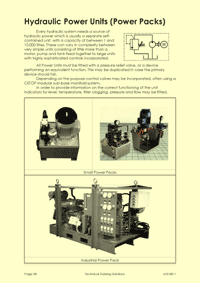 |
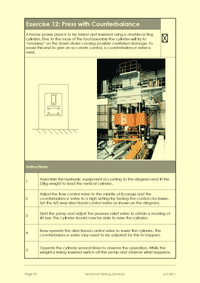 |
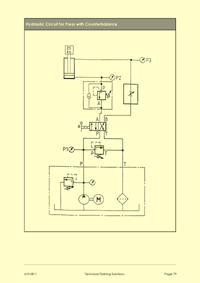 |
Page 38 of the Hydraulics training course notes used on the training course |
Page 78 of the Hydraulics training course notes, describing practical exercise No 12 of the training course |
Page 79 of the Hydraulics training course notes, describing practical exercise No 12 of the training course |
Safety is emphasized throughout the course and reinforced when practical exercises are carried out. Candidates are provided with a selection of hydraulic components (with clearly marked terminals) which they use to build various hydraulic circuits.
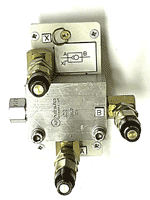 |
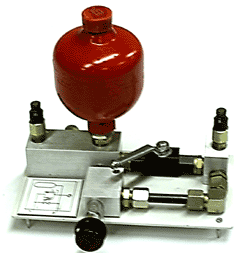 |
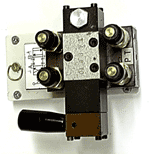 |
One of the piloted check valves |
One of the hydraulic accumulator blocks |
One of the 4/3 way directional |
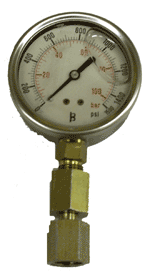 |
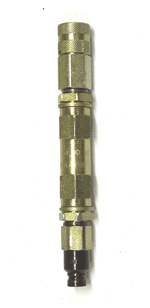 |
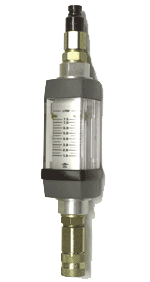 |
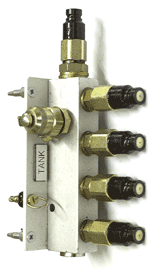 |
One of the hydraulic pressure |
One of the check valves |
One of the flow meters |
One of the manifold blocks |
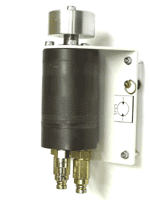 |
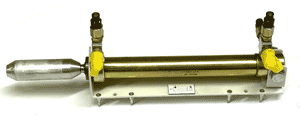 |
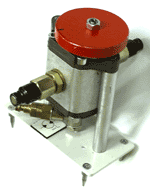 |
One of the hydraulic motors |
One of the hydraulic cylinders |
One of the hydraulic power units |
A mobile hydraulic pump is used to power our equipment and candidates use our oil analysing equipment to check the condition of oil in the system.
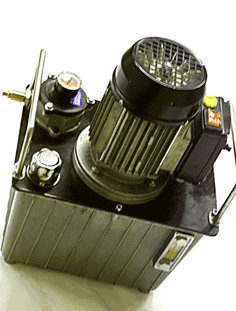 |
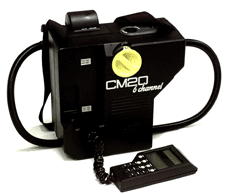 |
The mobile hydraulic power pack |
The industry-standard contamination monitor |
Candidates build the various circuits on modular boards, thereby gaining the experience of reading hydraulic circuit diagrams, identifying the symbols and understanding the systems. Faultfinding techniques are also covered at this stage.
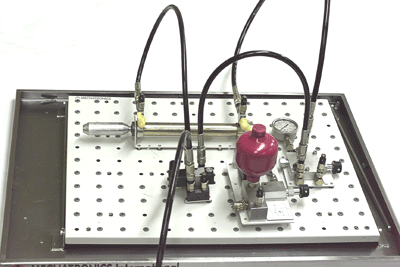 |
Candidates build hydraulic circuits on the modular boards used on the hydraulic training courses |
The course notes include various useful references, for example hydraulic oil specifications and symbols used in hydraulic systems.
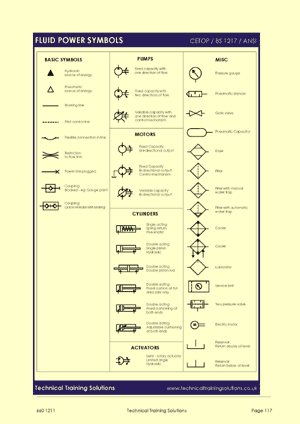 |
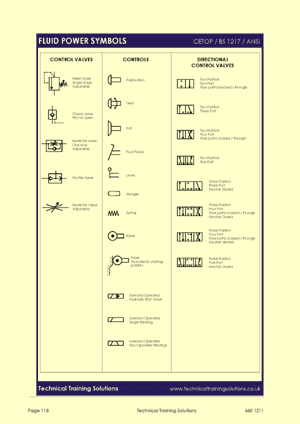 |
These are extracts from the course notes for the Hydraulic training courses, showing CETOP symbols to ISO 1219-1 and BS 2917 |
|
If you would like to see some of the equipment used on the Hydraulic training courses for yourself, then please call us to arrange a visit to our offices in Kent. Alternatively, we can visit you anywhere in the British Isles.


